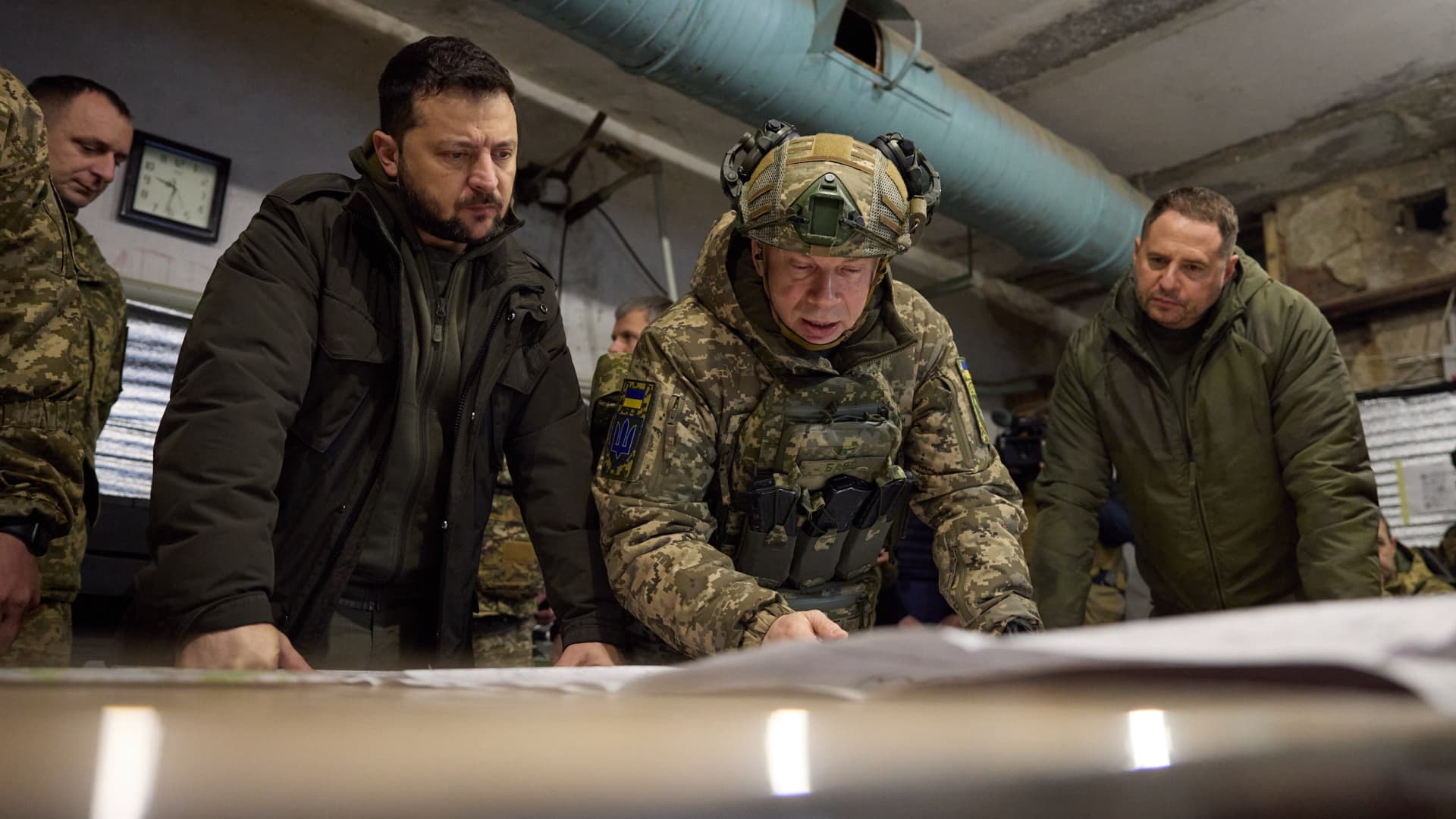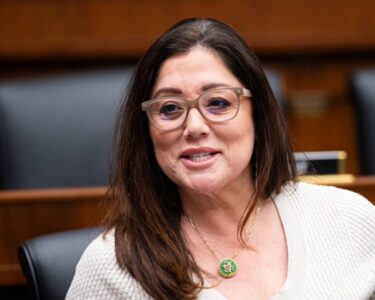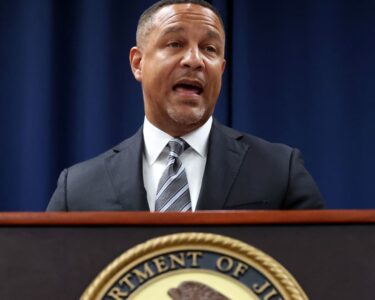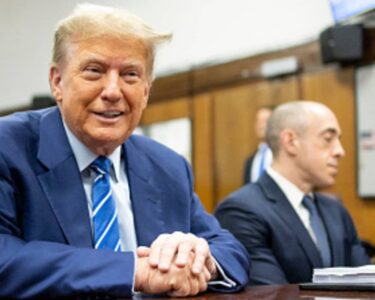This was CNBC’s live blog tracking developments on the war in Ukraine.
Ukrainian President Volodymyr Zelenskyy on Thursday called for quicker fortifications in key battlegrounds that face assaults from Russian forces, particularly in eastern Ukraine.
“In all major sectors, we need to boost and accelerate the construction of structures,” Zelenskyy said in his nightly address, according to a translation, after touring Ukrainian positions in the northeast that have been trying to repel recent Russian advances and recapture certain areas.
The Ukrainian air force said on its Telegram channel that it shot down 18 out of 25 attack drones launched overnight from Russia towards eastern and southern Ukraine, along with one of two guided cruise missiles.
Russia’s navy reported early Friday morning that it destroyed a Ukrainian navy vessel without crew that was heading towards Crimea, which Russia annexed in 2014.
U.S. National Security Spokesman John Kirby said Washington has been working with Ukraine to prepare for an expected Russian onslaught heading into winter by shoring up supplies in the event of attacks on heat and electricity infrastructure.
Separately, Russia’s presence at a European security meeting taking place Thursday caused a stir.
Russian Foreign Minister Sergei Lavrov attended the annual meeting of the Organization for Security and Cooperation in Europe, with Baltic nations and Ukraine refusing to attend as a result.
“A new phase of war” had been entered as winter has begun, President Volodymyr Zelenskyy told AP in an exclusive interview on Friday.
“Winter as a whole is a new phase of war. I’d say that a winter war takes place not only on the front lines but inside cities too,” he said.
Stormy weather, including strong winds and heavy snow and rain, have resulted in deaths and injuries, as well as infrastructure issues, across Ukraine and Russia in recent weeks.
Zelenskyy also addressed last summer’s counteroffensive, saying Ukraine had “wanted faster results,” adding that limitations to the size of Ukraine’s army and having less weapons than requested from allies were factors.
“There is not enough power to achieve the desired results faster. But this does not mean that we should give up, that we have to surrender,” he said. “We are confident in our actions. We fight for what is ours.”
Looking ahead, Zelenskyy discussed plans to establish weapon production within Ukraine and said the country would quickly scale production if they were provided with monetary support and relevant licenses.
— Sophie Kiderlin
European Council President Charles Michel told Reuters on Friday that the EU already has an “association agreement” with Ukraine, after Hungarian Prime Minister Viktor Orban called for a “strategic partnership” to be signed before talks could begin over Kyiv’s future membership.
A key summit of EU leaders in mid-December will require all 27 members to agree to begin accession talks with Ukraine once it meets final conditions. Orban, who maintains close ties with Russian President Vladimir Putin, told a state radio station on Friday that he would not sign off on the proposal in its current format.
He instead called for a partnership agreement of between five and 10 years to maintain closer cooperation with Ukraine and understand the consequences of possible EU membership prior to opening negotiations.
According to Reuters, Michel said the sidelines of the COP28 climate conference in Dubai that the existing agreement “offers a lot of possibilities for close cooperation with Ukraine.”
The Russian ruble fell to a two-week low against the U.S. dollar on Friday, as a recent rally spurred by Moscow’s capital controls, higher interest rates and an rising oil prices faded.
The ruble briefly slid back below 90 to the dollar and was heading for a weekly decline for the first time in eight weeks.
– Elliot Smith
Russian Foreign Minister Sergei Lavrov on Friday accused U.S. Secretary of State Antony Blinken of “simple cowardice,” after Blinken left the Thursday gathering of the Organization for Security and Co-operation in Europe in Skopje, North Macedonia, before the two could cross paths.
Lavrov’s attendance at the security community meeting was hugely controversial against the backdrop of its invasion of Ukraine, and prompted Kyiv and the three Baltic nations — Estonia, Latvia and Lithuania — to boycott the event.
Speaking at a news conference in Skopje on Friday, Lavrov also said Moscow saw no indication that Ukraine was willing to negotiate a political resolution to the conflict, and that Russia would not change the course of its “special military operation” in Ukraine, according to Reuters.
– Elliot Smith
Kremlin spokesman Dmitry Peskov told reporters on Friday that Russia has “no doubt” that Western sanctions will “last for many years” and that this forms the basis for its long-term economic strategy, according to Reuters.
The comments came after the U.S. assistant secretary of state for energy resources, Geoffrey Pyatt, told the Financial Times that Washington aims to halve Russian oil and gas revenues by 2030.
– Elliot Smith
Estonian Prime Minister Kaja Kallas on Friday insisted that Western support is not fraying amid a recent rise in popularity for right-wing populist figures across Europe.
“There is a lot of talk about war fatigue, but we also have to understand that there is war fatigue on Russia’s side, and if you think about the combined defense budgets of the Ramstein coalition that is behind Ukraine, they are 13 times bigger than that of Russia’s heavily inflated one, so there is no question who is stronger here,” she told CNBC at the COP28 climate conference in Dubai.
“We sometimes underestimate our own strength and power. We have to be firm, we have to stick to the lines.”
The Ramstein coalition, also known as the Ukraine Defense Contact Group, is an alliance of 54 nations, including all 31 NATO members and 23 non-NATO states, that are coordinating support for Ukraine’s defense against Russia’s invasion.
— Elliot Smith
Hungarian Prime Minister Viktor Orban on Friday suggested the European Union should sign a “strategic partnership agreement” with Ukraine rather than begin membership talks.
The 27 heads of EU member states will meet for a crucial summit this month to decide whether to accept the European Commission’s recommendation that the bloc open membership talks with Kyiv as soon as its final conditions are met.
All 27 nations must be unanimous in order to begin the process, but Hungary has said it would reject the proposal in its current form. Orban, who maintains close ties with Russian President Vladimir Putin, reportedly said in a state radio interview on Friday that he did not believe it would be possible for the EU to assess the consequences of Ukraine’s membership.
“I will represent the view that the EU should first sign a strategic partnership agreement with Ukraine,” Orban said, according to a Reuters translation.
“This could last for up to 5-10 years, let’s bring them closer, as the gap is too wide now. Let’s give time for us to work together and when we see that we can work together, then let’s bring up the issue of membership.”
— Elliot Smith
Ukrainian President Volodymyr Zelenskyy on Thursday called for quicker fortifications in key battlegrounds that face assaults from Russian forces, particularly in eastern Ukraine.
“In all major sectors, we need to boost and accelerate the construction of structures,” Zelenskyy said in his nightly address, according to a translation, after touring Ukrainian positions in the northeast that have been trying to repel recent Russian advances and recapture certain areas.
In particular, he cited the need for stronger defenses in Avdiivka, Maryinka and in other parts of the Donetsk region, along with various defensive lines in the Kharkiv and Kherson areas.
– Elliot Smith
The Ukrainian air force said on its Telegram channel on Friday that it shot down 18 out of 25 attack drones launched from Russia towards eastern and southern Ukraine overnight, along with one of two guided cruise missiles.
In a Google-translated report, Russia’s navy said early Friday morning that it destroyed a Ukrainian navy vessel without crew that was heading towards Crimea, which Russia annexed in 2014.
CNBC was not able to independently verify each side’s claims.
– Elliot Smith
German Chancellor Olaf Scholz discussed the latest political, military and humanitarian situation in Ukraine in a phone call with Volodymyr Zelenskyy on Thursday, the German government said in a statement.
Scholz told the Ukrainian president that Germany would continue to support Ukraine along with European and international partners.
Scholz also reiterated Germany’s “ongoing and unwavering solidarity” with Ukraine and said that its “future lies in the European Union,” according to the statement.
Zelenskyy discussed recent Russian attacks on Ukrainian civil energy infrastructure and thanked Germany for its military support.
— Jenni Reid
Russia’s Supreme Court ruled on Thursday that LGBT activists should be designated as extremists, in a move that representatives of gay and transgender people fear will lead to arrests and prosecutions.
A Reuters reporter in court heard it announce that it had approved a request from the justice ministry to recognise what it called “the international LGBT social movement” as extremist and to ban its activities.
The move is part of a pattern of increasing restrictions in Russia on expressions of sexual orientation and gender identity, including laws outlawing the promotion of “non-traditional” sexual relations and banning legal or medical changes of gender.
President Vladimir Putin, expected shortly to announce that he will seek a new six-year term in March, has long sought to promote an image of Russia as a guardian of traditional moral values in contrast with a decadent West.
In a speech last year, he said the West was welcome to adopt “rather strange, in my view, new-fangled trends like dozens of genders, and gay parades” but had no right to impose them on other countries.
Putin’s spokesman Dmitry Peskov told reporters before the court decision was announced that the Kremlin was “not following” the case and had no comment on it. The Supreme Court took around five hours to issue its ruling, after opening its session at 10 a.m. local time.
— Reuters
Russian Foreign Minister Sergei Lavrov told a meeting of the Organization for Security and Co-operation in Europe (OSCE) on Thursday that the group was “on the brink of an abyss.”
Attending the OSCE’s latest meeting in Skopje, North Macedonia, Lavrov accused the 57-member security-oriented organization that it was “essentially being turned into an appendage of NATO and the European Union.”
“The organization, let’s admit it frankly, is on the brink of an abyss,” he said, according to comments reported by Interfax.
“A simple question arises: does it make sense to invest efforts in reviving it?,” he asked, questioning the equality of member countries and approach to regional security problems.
So far, he said, “there are many more questions than answers.”
“But in the meantime, life does not stand still, the processes of Eurasian integration and equal cooperation based on an honest balance of interests are developing on our continent in constructive formats, regardless of the OSCE’s ever deeper immersion in the imposed confrontational agenda,” Lavrov said.
Ukraine and the Baltic nations boycotted this year’s OSCE meeting because of Lavrov’s attendance. The OSCE has also largely been hamstrung when it comes to decision-making because Russia has used its vetoes to thwart the process, putting its future into question.
— Holly Ellyatt
Baby among civilians injured in missile strikes on Ukraine; Russia causes a stir at security summit






